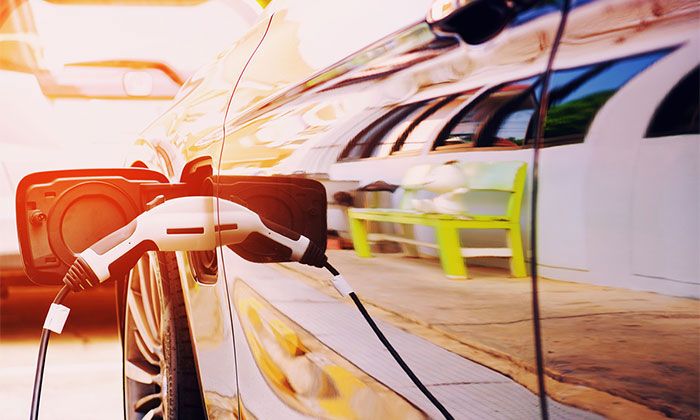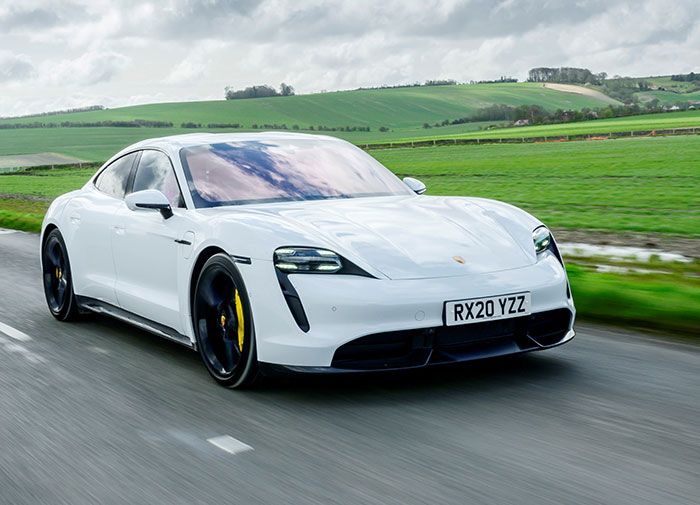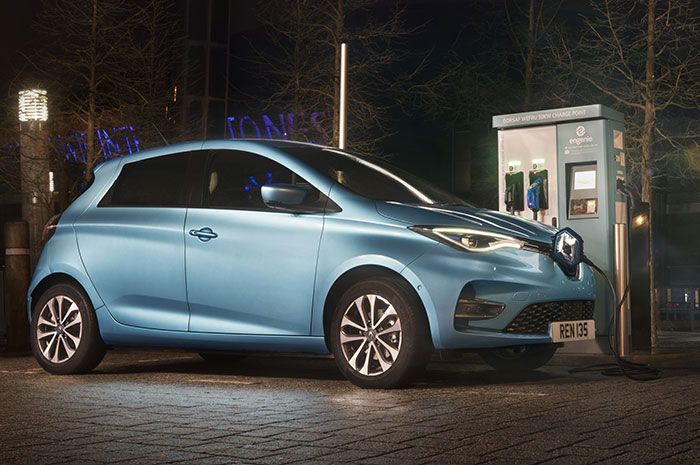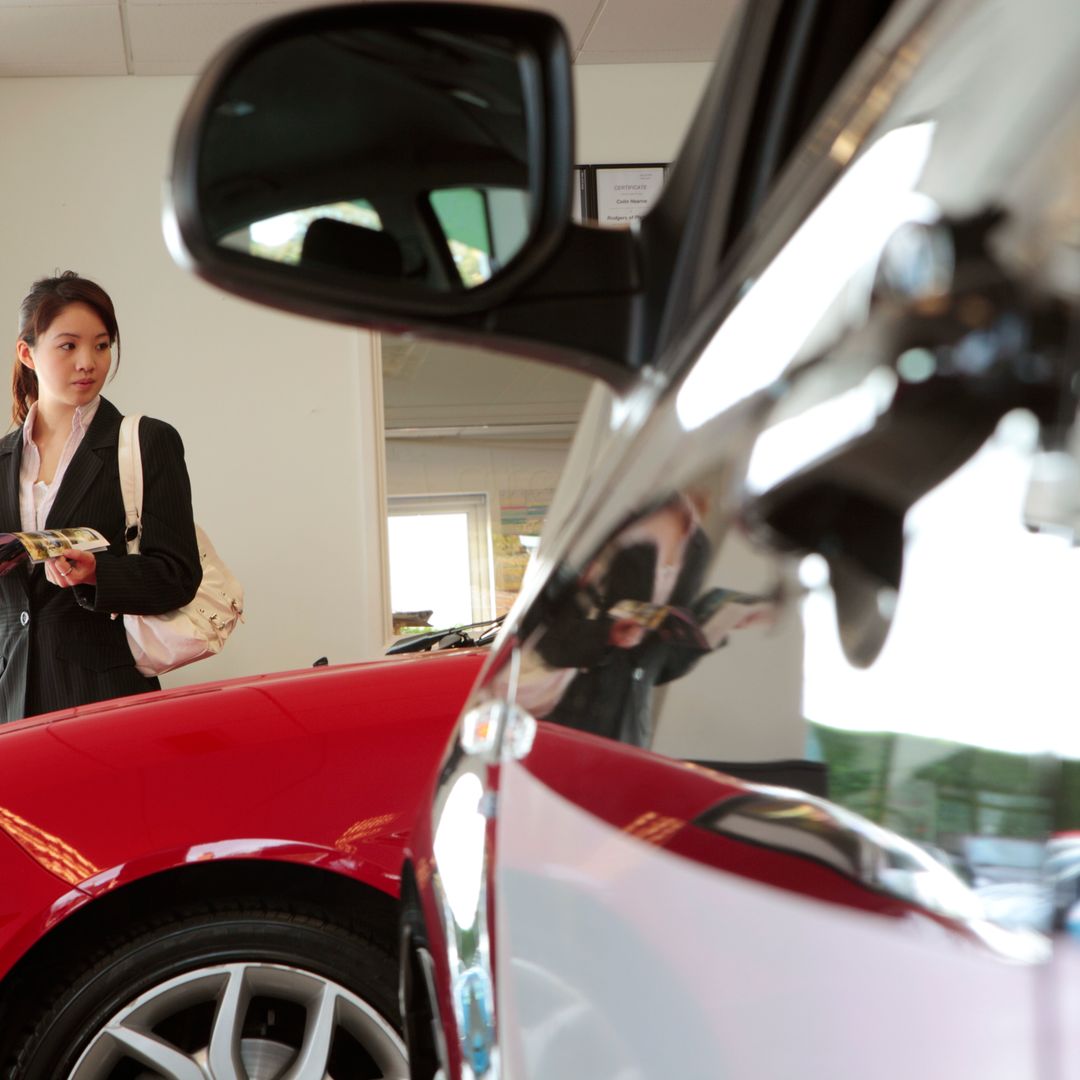Holly Willoughby, Lorraine Kelly and even Prince Charles all drive eco-friendly cars - and with car running costs lower with an electric car, it could be time to switch your diesel-guzzling or petrol family car for an EV. Not to mention doing your bit for the climate crisis.
With green number plates being trialled by big car brands like Nissan, and the new September number plates released, there's never been a better time to switch to an electric car - not only are they kinder to the environment, but they can save you cash too.
MORE: Surprising celebs who drive eco-friendly cars
Celebs including Holly Willoughby and Prince Charles all drive eco-friendly cars
10 benefits of driving an electric car
1. Electric cars are cheaper to run
Driving an electric car can cost around a third of an equivalent petrol or diesel car. Depending on the electricity tariff used, running an EV is estimated to cost about 3-4p per mile, compared to around 9-12p to fuel a typical petrol car. Based on a daily 50-mile journey, that's a potential saving of £1,000 per year.
SHOP: Speak to Alexa in your car with Amazon's Echo Auto
2. They're environmentally-friendly
Electric cars produce zero tailpipe emissions, benefiting air quality, especially in urban areas, by reducing harmful CO2 and NOx emissions. With a red alert on the climate crisis change, it's never been more apt to do your bit.
3. You don't have to pay road tax
All car owners must pay Road Tax, also known as Vehicle Exercise Duty (VED) or Car Tax, in order to legally drive on the UK roads. Road Tax is based on emissions which means that drivers of EVs pay nothing. Many owners of conventional cars pay more than £1,000 per year.
The stunning Porsche Taycan is the first full-electric car from the luxury brand
4. Growing choice of electric cars
There was a time when driving an EV had little street cred because the choice was down to odd, impractical cars such as the REVA G-Wiz. Now, most major manufacturers offer electric versions of conventional cars (like the Vauxhall e-Corsa, Volkswagen e-up! and Hyundai Kona Electric), or attractive all-new pure EVs, such as the Jaguar I-Pace and Honda e.
READ MORE: We review the luxury Porsche Taycan
5. Tax incentives
Company car tax is much lower if you drive an electric car and business users can save thousands of pounds a year. Under the latest tax changes, fully electric cars pay no company car tax in 2020/21, just 1% in 2021/22 and 2% in 2022/23.
6. Government grant
If you buy an EV costing less than £50,000, you are eligible for a £3,000 Government Plug-in Car Grant (PiCG).
7. Electric cars are big on safety
Electric vehicles undergo the same rigorous testing and meet the same safety standards required for petrol or diesel fuelled cars. In fact, most new electric vehicles have been awarded a maximum five stars in Euro NCAP crash tests and they sport the latest driver assistance and safety features such as autonomous emergency braking (AEB), lane-keep assist, parking assistance, adaptive cruise control and overtaking or blind spot sensors.
TEST YOUR KNOWLEDGE: How well do you the royal family's motors? Take our car trivia quiz to see
8. You don't have to pay the Congestion Charge
The London Congestion Charge aims to reduce traffic and emissions in the capital's centre. Thanks to zero tailpipe emissions, EV drivers pay zero Congestion Charge. Some London boroughs also offer free or reduced-charge parking for electric vehicles. In years to come, electric cars are also likely to make sense elsewhere in the country as more cities launch Clean Air Zones (CAZ).
9. Electric cars are cheaper to maintain
Petrol and diesel engines are complex and have hundreds of components that can wear, fail and need replacing. Electric cars have just three main components and far fewer moving parts than a combustion engine. That means servicing and maintenance is simpler and cheaper, which saves you money - Nissan estimates that EV maintenance costs are up to 40% lower.
The zero-emission Renault ZOE
10. Bye-bye petrol stations
There are now more than twice as many public charge points for electric cars than there are petrol stations, according to the latest Government figures. Data from the Department for Transport reveals there were 17,947 devices as of 1 April 2020, compared to around 8,000 service stations, selling petrol and diesel.












